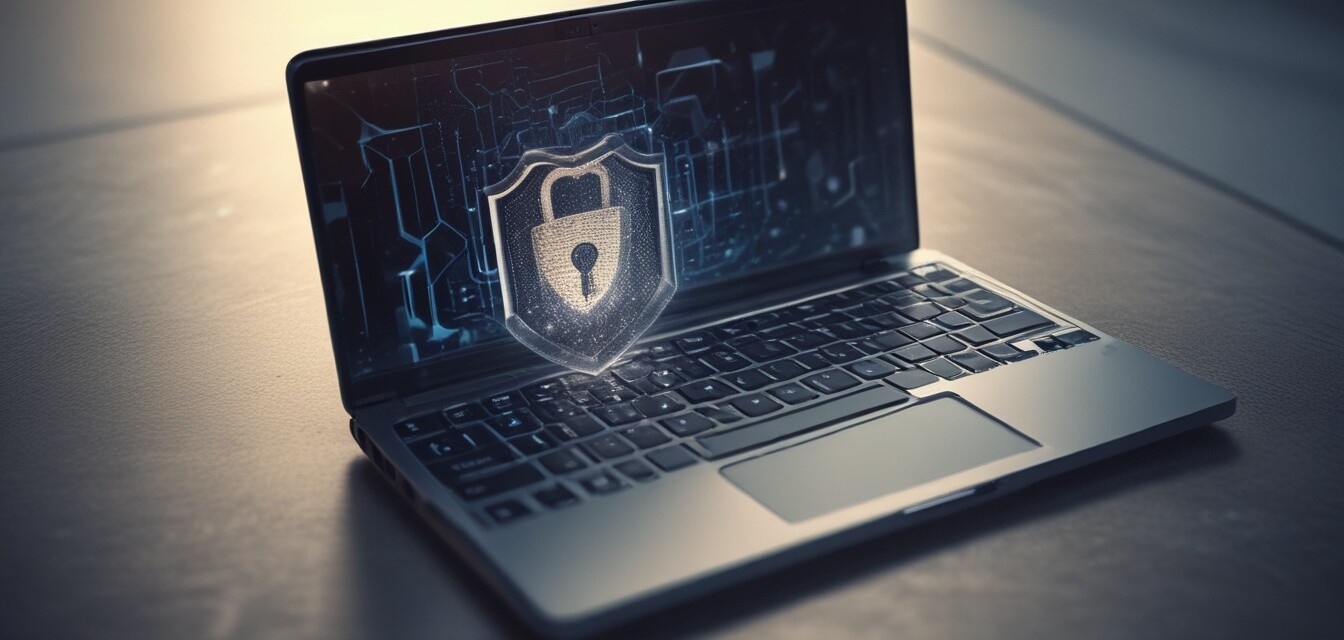
Enhancing Laptop Security: Best Practices
Key Takeaways
- Always keep your software updated.
- Utilize strong passwords and multi-factor authentication.
- Install reliable antivirus and anti-malware software.
- Enable encryption for sensitive data.
- Be cautious about public Wi-Fi connections.
- Make regular backups of important files.
When it comes to laptops, security is a crucial aspect that users can't afford to overlook. Whether you're a professional, a student, or a casual user, taking proactive measures to protect your device and sensitive information should be a top priority. Here are some effective strategies to enhance your laptop security against theft and data breaches.
1. Keep your software updated
One of the simplest yet most effective ways to protect your laptop is by regularly updating your operating system and software. Software updates often include security patches that address vulnerabilities, making it more difficult for malicious users to exploit them.
Steps for Updating Your Software
- Go to Settings on your laptop.
- Select Update & Security.
- Check for updates and install them.
2. Use strong passwords and multi-factor authentication
Weak passwords are a common gateway for cybercriminals. Use a combination of letters, numbers, and symbols to create strong passwords. Additionally, enable multi-factor authentication (MFA) wherever possible for an extra layer of security.
Tips for Creating Strong Passwords
- Avoid using easily guessed information like birthdays or names.
- Use at least 12 characters.
- Consider using a password manager to store and generate complex passwords.
3. Install reliable antivirus and anti-malware software
Antivirus software serves as a frontline defense against malicious programs. Ensure you choose a reputable program and keep it updated to safeguard your laptop from various threats.
Beginners Section
If you're new to virus security, follow these tips:
- Start with built-in antivirus solutions if you're unsure where to begin.
- Run regular security scans.
- Educate yourself about common malware types.
4. Enable encryption for sensitive data
Data encryption helps protect your sensitive files in case your laptop is lost or stolen. Encrypted data is unreadable without the proper decryption key.
How to Enable Encryption
- For Windows, search for BitLocker in the Start Menu and follow the prompts.
- For Mac, go to System Preferences > Security & Privacy > FileVault and turn it on.
5. Be cautious about public Wi-Fi connections
Public Wi-Fi can be a breeding ground for cyberattacks. Avoid accessing sensitive information or conducting financial transactions on unsecured networks.
Best Practices for Using Public Wi-Fi
- Use a virtual private network (VPN) to encrypt your internet connection.
- Avoid connecting to unnecessary networks.
- Turn off file sharing on your device when using public Wi-Fi.
6. Make regular backups of important files
Backing up your data ensures that you won't lose critical information if your laptop is compromised. Set up automatic backups to reduce the chances of data loss.
Backup Options
| Backup Type | Description |
|---|---|
| External Hard Drive | Physical storage device that allows you to manually back up files. |
| Cloud Storage | Online services that allow automatic backups and access from anywhere. |
| Network Attached Storage (NAS) | A personal server that connects to your network for centralized backup. |
Pros
- Enhances protection against data breaches.
- Reduces the risk of identity theft.
- Increases peace of mind when using devices.
Cons
- Can be time-consuming to set up initial protections.
- Some security measures may affect device performance.
Conclusion
Enhancing your laptop security is essential in today's digital world. By implementing these best practices, you can significantly reduce the risk of data loss and unauthorized access. Remember, a secure laptop is not just an option; it’s a necessity. For more tips on optimizing your computing experience, visit our Expert Tips section or check out our Budget Laptops for secure but affordable options that best fit your needs.
For more detailed buying guides tailored to your needs, feel free to explore our Buying Guides or stay updated with the latest trends in technology at our News and Trends section.